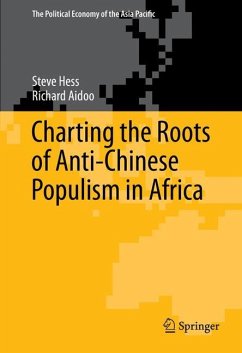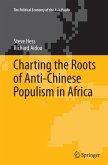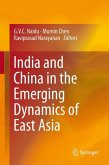This book investigates China's emergence as an outside player in SSA over the last several decades and the current understanding of the impact of Beijing's growing presence on the continent, including several case studies focused on specific SSA countries. China's accelerating economic and political engagement with sub-Saharan Africa (SSA) has gained growing attention in political and academic circles as a topic of both praise and derision. China has become the standard bearer of rising powers emerging from the developing world, and has begun to make inroads in its effort to secure strategic natural resources in a region traditionally dominated by the status quo powers of the West. Publications concerning Sino-African relations have increased rapidly over the last decade. Instead of asking whether or not China's role in SSA is a positive for the continent's political, economic and social development, this book focuses on often overlooked African publics and how they perceive China's engagement. Moreover, instead of constructing a uniform "China meets Africa" narrative, this work examines China's presence in sub-Saharan Africa on a country-by-country basis, accounting for the intensity of Chinese engagement, the country's domestic political institutions, and the way in which political entrepreneurs within these systems choose to utilize Chinese involvement as an instrument of political mobilization. It will be of interest to scholars and policy-makers concerned with Africa and China's development and international relations.
Bitte wählen Sie Ihr Anliegen aus.
Rechnungen
Retourenschein anfordern
Bestellstatus
Storno








